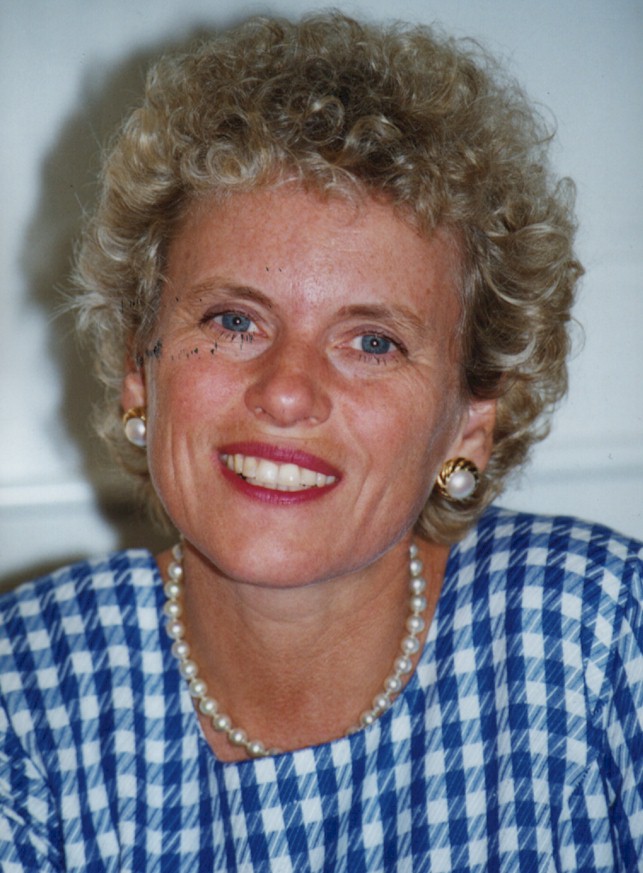

What are you thoughts on the
current conflict in Kosovo, and Sweden's role in it?
"Sweden is a European
country, and Yugoslavia is in Europe, so we are obviously affected because this
is a very complicated conflict in our part of the world. Sweden has been very
active in the 90s since the beginning of the conflict by participating in the UN
peacekeeping force in Bosnia, and although we already have many refugees, we
recently agreed to take 5,000 more from Kosovo.
"It is very clear to us
that the main cause of the current conflict is Boris Milosevic. If he had been
more forthcoming, things would have been different. But as Sweden is a strong
believer in international law, we do regret that NATO's military action was not
sanctioned by the United Nations Security Council."
You are one of three female
ambassadors serving here in Thailand, why is that?
"I can only speak for
Sweden, but the reason my country has not had that many Swedish ambassadors is
because diplomacy was not a route that women sought, but when I joined the
service twenty years ago I was actually part of a class where the women
outnumbered the men. Sweden has a reputation though for trying to encourage
women to take roles they traditionally wouldn't take. And now the Swedish
government has instituted a very conscious policy of promoting more equality
between men and women in all professions."
How difficult has been for
you working here as an ambassador?
"Actually, it has been very
easy. Thais are very open, friendly, and they receive you wholeheartedly. You
can get information easily, and it's easy to talk to people.
Sweden has a good standing here and we have a long history of relations
with the Thais. We also have an active Swedish business community, which like
everyone else has suffered because of the crisis, but they believe in Thailand
and they are here for the long term."
Ambassador Fogh is also the
Swedish ambassador to Cambodia, Laos and Myanmar. So which places have impressed
her most in journeys?
"There are three places I
have really enjoyed. First, Krabi here in Thailand, which is extremely
beautiful. This is what we northerners dream about during cold winter nights:
the sun, the beautiful beaches, it's really a paradise. Second, Angkor Wat which
is of course spectacular and very intriguing because the culture, religion, and
architecture are so different from our own. Third, Luang Prabang which is almost
a mystical place set in the mountains on the Mekong River. It is very small but
extremely beautiful."
What about your thoughts on
the economic crisis and Thailand is handling it?
"The Thai government has
received a lot of international praise for their handling of the crisis.
Remember, when the crisis first hit, a lot of us thought it was just Thailand,
and of course this simply wasn't the case, as the whole region was eventually
drawn into it, including Japan.
"Restructuring of the
financial and banking system is essential, making it more open and more
transparent. But this is difficult because it challenges vested interests and
traditions of doing business. And the same kind of structural adjustments have
to be made in the corporate world as well. All of this takes time and it is
extremely difficult to implement new measures during this stressful time."
How can Sweden help?
"Sweden is traditionally a
believer in open trade as we believe this is the basis of our economy, and our
well-being in our part of he world. So we can help Thailand by opening our
markets to Thai products.
"We also have a program of
technical cooperation with Thailand where we impart environmental management,
transportatiion and communication expertise. We are currently reviewing our
focus now with the aim of better helping Thailand cope with the economic
crisis."
Any thoughts on the GSP?
"A few years ago, when
Sweden became a member of the European Union, we had to introduce a number of
trade restrictions that we had worked hard to eliminate. It was one of the
conditions of membership, and we are still trying to get rid of them. It is very
unfortunate that recently Thailand lost some of its privileges, but this really
only affected a small part of the total number of Thai exports and Thailand
still enjoys a high level of privileges for many of its products."
What about recent cultural links
between the two countries?
"There is a Thai pavilion
that has been built in Ragunda, in Northern Sweden. It's in memory of the visit
of King Chulalongkorn, Rama V to Sweden back in 1897. He went to Stockholm and
continued up to Northern Sweden. The pavilion is located in a the middle of
typical Swedish river valley, it has been built to withstand a Swedish winter
and the ground has been blessed by Thai monks."
How does Thailand rank as a
tourist destination for Swedes?
"Thailand has really become
a very big tourist spot in my country as 100,000 Swedes travel here each year.
When I go to Krabi and Phuket, there are Swedes all around. We are a traveling
people, we like to see new places. Thailand has done very well promoting itself
in Sweden, and Swedes primarily come here during the winter months to enjoy the
sun, the beaches, the good food, the exotic culture and the friendly people. But
many are now starting to come throughout the year and travel all over the
country as well."
The Ambassador is returning to
Stockholm shortly. Swedish foreign policy sees a diplomat working in two foreign
posts before returning home for a new assignment. She was a minister for the
Swedish mission to the UN before arriving here. Her next job is to co-ordinate
the Swedish Presidency of the EU for the first six months of 2001.
For more information on Swedish trade check out: www.swedishtrade.com
Finis